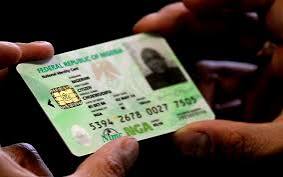Nigeria’s ongoing struggle with the National Identity Number (NIN) and Subscriber Identity Module (SIM) linkage policy highlights significant government inefficiencies.
Despite numerous deadlines and attempts to register citizens, many still face difficulties linking their NINs to their SIM cards.
Recently, telecom operators blocked unlinked SIMs before the July 31 deadline, causing widespread confusion and disrupting daily life for millions.
The NIN-SIM linkage, introduced in December 2022, is part of the government’s effort to enhance security and curb crimes like identity theft and kidnapping.
However, the implementation has been marred by poor internet connectivity, power supply issues, and crowded registration centers, leading to frustration and protests from citizens.
As of April 2024, 105 million Nigerians had registered for NIN, but many lines remain blocked despite the NCC’s order to restore them. The process is riddled with inefficiencies, and citizens are often extorted or face long delays. The government must streamline the process, improve coordination between agencies like the NCC and NIMC, and ensure the protection of biometric data across multiple databases.
Citizens should not bear the brunt of the government’s shortcomings in executing the policy.








